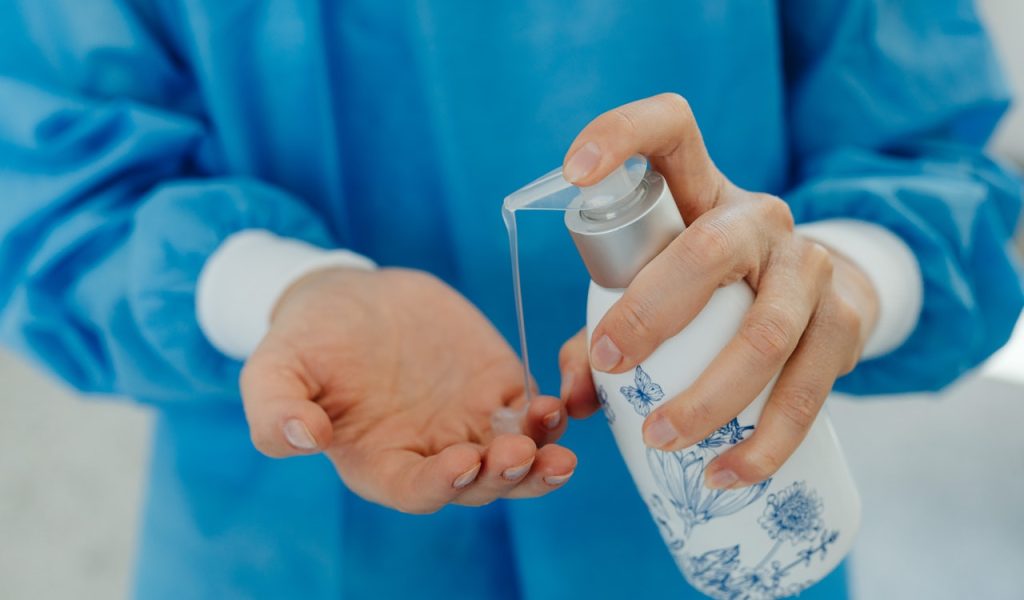Overview
Hey everyone!
Happy New Year and welcome back to the blog for 2022!
Today’s post has been requested by a few of my friends who are just about to begin GP training. Shout out to you guys!
This article is a compilation of the things I learnt in my first few months as a GP Registrar as well as things I wish I was told before starting training.
I apologise in advance for the length of this article, but I’ve erred on the side of being thorough to give those soon-to-be GP registrars the best possible start to their careers.
If you’d like to skip to certain sections, here’s the outline of today’s article:
- The Structure of GP Training in Australia
- How Do You Get Paid as a GP Registrar?
- Billings and the MBS
- Leave Entitlements
- Supervision and Teaching
- Electronic Medical Records and Documentation
- The Appointment Book
- The Consult and Making Referrals
- Challenging Consults as a 1st Year GP Registrar
- Useful Resources
- The Art vs Science of Medicine
- COVID-19 in General Practice
- I Start GP Training Next Week – How Should I Prepare?
- The Feels
- My Top 10 Takeaways

Introduction
Welcome to General Practice!
GP-land is nothing like you were told in medical school. It’s certainly not boring, it’s not easy, we don’t sit around all day drinking coffee and chatting, and it’s certainly not all scripts and medical certificates.
However, GP land is extremely rewarding and intellectually stimulating. It can be a complete mess sometimes (thanks COVID) but it’s definitely got its good bits too.
For those new GP registrars about to begin, welcome to the club! We are super glad to have you all on board!
The first point I want to make is, don’t expect to be great at it from the get go. Transitioning from the hospital to community based practice is challenging, even for very experienced doctors. You will make mistakes but you will learn from them. You will not know everything and nor should you be expected to. So go easy on yourself, especially in those first few months.
I’ve designed this guide to be a compilation of things I wish I knew before starting as a 1st year GP registrar. I hope you find it useful!
1. The Structure of GP Training in Australia
In Australia, GP training through the RACGP mandates two years of community (non-hospital) practice. If you’re with ACRRM, the training is slightly different but still involves working in a GP practice for some length of time.
The majority of registrar’s spend those two years in training working in two (or more) general practice clinics. In order to complete the RACGP fellowship, registrar’s need to pass two written examinations and one clinical examination. These usually take place in the second year of training. (I’ll write a detailed post on this later).
Once these are completed and training time has been completed, registrar’s will successfully attain their Fellowship.

2. How Do You Get Paid as a GP Registrar?
The first major difference between hospital and community practice is the way in which doctors are paid. In the hospital, doctors will receive a fixed salary with an hourly rate and other entitlements (super, annual leave etc)
In general practice, doctors work as contractors and are based based on the amount they bill (”charge”) Medicare for the service they provide. If they don’t work, they don’t get paid. They are also not entitled to sick leave, annual leave and super etc.
As a registrar in GP land, there are a few caveats to this. Firstly, you have a base salary. This is the minimum you will be paid even if you see zero patients per week. Secondly, you are entitled to annual and sick leave. Thirdly, you will receive superannuation as well. These are all outlined in the latest version of the National Terms and Conditions of Employment for Registrars (NTCER).
However, as a registrar you have the opportunity to make more than your base income in the form of “Billings”. Billings are the sum total of what you have charged Medicare over a given pay period (1 week, two weeks, 13 weeks). When billings are calculated, the practice will take a certain percentage and you will receive the rest.
For example, let’s assume you were being paid weekly and your base salary was $1500 (pre-tax). You’re billings are calculated on a 50% rate.
Let’s assume you had a cracker of a week as a GP Registrar and you billed Medicare $5000 (go you!). The practice would take 50% of this ($2500) and you would receive the rest ($2500).
When we compare you’re base salary ($1500) to your take home billings ($2500), you made more money through billings. Therefore you will be paid according to your billings.
So now you might be wondering how you actually charged Medicare these $5000 in this amazingly busy week you had as a GP Registrar.
3. Billings and the Medicare Benefits Schedule (MBS)
Billings are specific dollar values that are assigned for certain services. For example, Medicare will pay you $39.10 for a standard consultation lasting 5-20 minutes. In order to tell Medicare that you have provided this service, you need to bill them an item number (in this case a 23). As you become more familiar with general practice, you will learn lots more item numbers. For a full list, check out the MBS website. The item numbers that I would recommend you know are:
- 23 – for a standard consultation lasting between 5 and 20 minutes
- 36 – for a long consultation lasting > 20 minutes
- 44 – for a consultation lasting >40 minutes
- 91891 – for a telehealth consult lasting >6 minutes
- 92746 – for a telehealth consult lasting >20 minutes
- 2700 – GP Mental Health Care Plan (for those without Mental Health Skills Training, use this until you’ve completed the training)
- 2715 – GP Mental Health Care Plan (for those with MHST, use this once you’ve completed the training)
I would recommend signing up to the Australian Doctor website here, to receive a free PDF Quick Guide for commonly used Billing Numbers. They have a COVID19 specific one too! Stick this to the wall in your consulting room or have it handy. It will save you loads of time!
Most practices have a list of commonly claimed item numbers, so make sure you ask to see it during your orientation.
I’ll do another blog post on the specifics of item numbers as well as item numbers around care plans etc in the coming weeks.
When in doubt, claim a 23!

4. Leave Entitlements
One of the best parts about GP land is that you are no longer tied to the shackles of the hospital rostering system and administration. For the most part, you can take your annual leave as you so wish. Want two days off to extend the weekend, go for it! Need next Tuesday off for a wedding, you gotcha! Of course, this might be different during Covid times, but for the most part, leave is much more flexible in GP land than the hospital system.
The only thing to be mindful of is that there is no paid study or professional development leave as a registrar. Therefore if you are planning to sit exams, you will have to account for this or take unpaid leave from the training program.

5. Supervision and Teaching
As a GP Registrar, you will have an assigned supervisor at your practice. They will be your first port-of-call for any clinical conundrums you might have. Depending on the practice, there may be other doctors who are willing to teach / answer your questions. You are required to have at least 1 hour of face to face teaching with your supervisor in the first year of GP training. Make sure this time has been allocated in the appointment book. The supervisor (and practice) are paid to teach you but it’s up to you to advocate for yourself if the teaching isn’t happening.
In addition to this, you will have group teaching with all of the other registrar’s in your cohort / RTO. This may be TH or FTF depending on where you live / COVID19. These are great sessions to debrief with your colleagues about the highs and lows of your week. They are meant to be educational sessions but also serve as a great way to develop a GP community and tackle any isolation you might feel as a registrar.
6. Electronic Medical Records and Documentation
In the hospital, most doctors are familiar with electronic medical records. You’ll be pleased to know that General practice isn’t without its fair share of documentation and EMR workload. The most common one you will come across is Best Practice, followed by Medical Director (which is clunkier and a tad outdated). You’ll be pleased to know that these are much more intuitive than ieMR or whatever hogwash the hospital’s use these days.
Best Practice/Medical Director is where you will write all your notes, look up patient records and receive results.
I would recommend setting up some Auto Fills in the software which allow you to pre-populate notes common consultations (for example, A Driver’s Licence Medical Assessment, COVID related consultations, Vaccinations, Baby Checks). Also, be sure to ask for an orientation to the electronic medical record, it will make your life a lot easier.

7. The Appointment Book
Managing your appointment book as a GP registrar can mean the difference between an enjoyable day versus a stressful and chaotic day. As a first year GP registrar you shouldn’t see more than 2 patients per hour (i.e. 30 minutes per patient). As you become more comfortable, you will be able to increase this. Don’t be in a rush to see more patients, take your time and learn the ropes first.
Ensure you have enough “Unavailable” or “No Booking” slots in your appointment book. I would recommend every 2nd appointment slot should be an “Unavailable” when you are first starting out. They are for you to go at a reasonable pace whilst you learn the ropes of General Practice. The main thing you (and everyone else) in the practice needs to know is that these “Unavailables” are SACRED. They do not mean that patient’s should be ad-fitted to see you (make sure reception and nursing staff are well aware of this). It’s important to talk to your supervisor if you feel that you are seeing too many patients / feeling rushed, as things can get out of hand quickly. Trust me, it is very easy to become overwhelmed when you are first starting out (been there, done that).
Ensure that you have a reasonable lunch break, half of which will probably be spent completing referrals or tidying up documentation. Also, ensure you book off time for teaching, check results and attending any mandatory RACGP/RTO Teaching you may have.
8. The Consult and Making Referrals
My number one top tip for managing the length of your consultation, is to get the list early! Ask the patient what they are here for today, and don’t stop after issue number 1. Some patients will come in with an actual list of 20 long standing health issues they expect to be resolved in 15 minutes. Thank them for making a list. Prioritise the most important problems first (these may not align between you and the patient e.g. their central chest pain for the past 2 hours vs their sore left pinky toe for the past 3 years…). Suggest a follow up / longer appointment to address the other issues.
Secondly, when it comes to making referrals, always ask the patient if they have private health insurance. This can change who you refer to and how timely a patient will receive an appointment. Referrals are written on the electronic medical record and are then sent through to various hospitals or specialists. When writing a referral letter, keep it succinct and to the point – think ISBAR but on paper.

9. Challenging Consults as a 1st Year GP Registrar
There will be many challenging consults as a GP Registrar, some of which include:
Driving Licence Medical Certificate
We were never taught how to do these in medical school or as a junior doctor. They can be quite daunting, especially if your patient (or a patient you’ve inherited from another GP) has multiple chronic conditions. When you are just starting out, use the Australian Fitness to Drive Guidelines and their Medical Certificate sheet to help you out. Note that different states have different forms and processes.
Work Cover Certificates
This is a classic GP consult where a patient presents with an injury that occurred at their workplace. They may be entitled to worker’s compensation. During this consult the main aim is to ascertain the mechanism of injury, whether this matches with the physical examination and outlining any management (investigations, referrals) you feel the patient requires as part of their treatment. You will be asked to list the time period the worker requires treatment and whether or not any further review is required. The onus is then on the patient to call Work Cover to have their claim approved. If a claim is approved, Work Cover will cover the cost of the consult (and any follow-on treatment). Thus, the consult will be billed to Work Cover. However, if Work Cover refuses the claim (or part thereof) it is up to the patient to pay any outstanding fees.
Mental Health Care Plans (MHCPs)
Once again, these are completely unique to general practice. A significant number of consults in general practice are related to mental health e.g. anxiety, depression, post traumatic stress disorder. There is a special item number for Mental Health Care plans which require the treating doctor to meet certain requirements (for example, the consult has to be >20 minutes). You can find the item descriptor here. This consult involves assess the mental health presenting complaint, performing a risk assessment and mental state examination and instigating a referral to a psychologist or making a plan for future follow up. All of this is usually documented on a Mental Health Care Plan template which your practice will have set up for you.
GP Management Plans / Team Care Arrangements (GPMP/TCA)
GP Management Plans form an important part of looking after any patient with a chronic disease (defined as lasting, or going to last, >6 months). They give GP’s the opportunity co-ordinate a patients care, especially when multiple providers are involved. Secondary to GPMPs are Team Care Arrangements (TCAs) which are agreements between the GP and an allied health professional to be involved in a patient’s care. GPMPs and TCAs are often completed together but can be done separately depending on the situation. Both have their own item numbers of 721 (GPMP) and 723 (TCA). Realistically, you won’t start doing many of these until the second half of the year as a registrar, once you have a few long term patients.
Patient’s Requesting Certain Medications / Exemptions / Multiple Issues
Patients will come to you, as their GP, requesting all sorts of things. It’s your job to decide whether it is a reasonable request (and therefore should be actioned) or whether it should be deferred or declined. It’s important to learn how to say “No” as a doctor, especially when you are unsure of the medico-legal implications of the action you are asked to perform. Most of the time, there is already strict guidance around this. Examples include S8 prescriptions, mask exemptions, vaccine exemptions. There are very clear Government rules and guidelines about each of these so always refer back to them when explaining your decision to the patient. My advice in this department would be to trust the nagging feeling in your stomach when a patient asks you to do something you are not comfortable with.

10. Useful Resources
At the beginning of every day in General Practice, I would turn on my computer and open the following websites to help me survive the day:
- Electronic Therapeutic Guidelines (the modern day bible of GP Training, sorry Murtagh)
- Australian Medicines Handbook
- Royal Children’s Hospital Melbourne
- Health Pathways (unique to your state/territory but very useful)
Some important Guidelines/Handbooks to be familiar with:
- Australian Fitness to Drive Guidelines
- RACGP Red Book for Preventative Activities in GP (highly recommend the table at the very end)
- Australian Immunisations Handbook
- COVID 19 Guidelines (and ABC News….no joke)
11. The Art vs Science of Medicine
The beauty of general practice is that I combines the art and science of medicine. It’s not just about knowing your stuff, you have to be able to share that knowledge to educate and communicate with your patients. It’s a very different approach to hospital based medicine and has very different timelines and presentations. You will learn different communication techniques as you go through training and start working. You will work out your own individual style, mostly through trial and error. However, communication is something that we can all improve upon and it becomes especially important when you are dealing with difficult requests or tackling subjects you are unfamiliar with.

12. COVID 19 in General Practice
Covid 19 has made for a pretty tough time in GP land. New registrars will be entering GP when the Australian healthcare workforce is already burnt out from handling the rollercoaster that is COVID19. GP’s have had to contend with COVID vaccinations, mask exemptions, COVID testing, PPE shortages and now are bearing the brunt of a massive COVID wave around Australia. This has been on top of the day-to-day work of General Practice – diagnosing cancers, doing health assessments, baby checks, managing pregnancies, dealing with mental health conditions. So it’s no wonder GP’s are burnt out.
This will affect the start of your training. Your supervisors may also be practice owners, and therefore under enormous amounts of stress. You will be expected to manage COVID positive patients through telehealth and make appropriate management plans.
In order to prepare for this, it’s worth completing your COVID vaccination training online, reading about the various vaccines and their contraindications and side effects as well as knowing where the nearest hospitals/testing centres are in your locality. Most importantly, keep yourself safe and healthy.
13. I Start General Practice Next Week – How Should I Prepare?
This is a common question lots of new registrar’s ask. Firstly, there’s nothing that you can learn in the next week that will make your life as a General Practice registrar easy. However, there are things that you can do to make the transition as smooth as possible. Learn a little bit about the MBS and Billings, as this is the biggest adjustment from the hospital system. Secondly, learn about the current COVID19 situation and how it is being managed in primary care. You can read this RACGP Guideline here. Thirdly, make sure you have all the necessary documentation to begin working (provider numbers, contracts, bank details, superannuation etc.) The rest of the learning will be done on the job!
14. The Feels
I’m not going to sugar coat this for you. The first 6 to 9 months of general practice will be HARD! But it will also be an enormous period of growth for you as a clinician. You will get to look after your own patients, make clinical decisions and see the results. You will learn LOTS and it’s great to build long-lasting relationships with patients. It is definitely a 180 degree change from the hospital and you will probably go home feeling anxious about your patients more days than not. This is COMPLETELY NORMAL. There will be times when you will want to quit (I certainly did).
However, once you’ve gotten through this initial phase, general practice becomes a lot more enjoyable. You will have built up sufficient knowledge to deal with (or delay) most presenting problems. And your patients will get to know you by this time. My advice would be to have a network of other GP registrars that you can talk to, debrief with and provide mutual support. They are the only other people who understand what it’s really like to be in your shoes.

15. My Top 10 Tips for New Registrars
- Control your appointment book – Do NOT let anyone add extra patients or double book patients without your consent. You should not feel rushed or pressured into seeing extra patients, especially in the first 6 months of training.
- Just because a patient asks for something, doesn’t mean you have to say yes. Assess the request and don’t be afraid to ask questions or defer the decision to the next consult.
- Get the list early. It helps to manage expectations so that you and the patient are on the same page from the get-go. It also teaches your patients to book long/multiple appts for complex issues.
- Find healthy ways to manage anxiety. If you are still worried about something at the end of the day, it means you should have done something different or spoken to someone about it.
- Keep a “To Do” list at work – of all the outstanding referrals or non-urgent phone calls you need to make.
- Allocate time in your appointment book to check results. Checking off results can take time, especially if it was a vague presentation or you are not sure what to do. Rather than making rushed decisions, allocate a slot in your appointment book dedicated to checking off results.
- Practicing independently is scary but also very rewarding. In the hospital system, junior doctors get used to running everything by their registrar or consultant. In general practice, you are largely operating on your own, even as a first year registrar. This new found independence is definitely daunting but remember help is not far away. There are always people you can call e.g. your Supervisor in the next room, a radiologist who reported the scan, the hospital registrar or private specialist, other colleagues, the internet.
- Don’t be afraid to look things up. You cannot and will not be expected to know everything.
- Eat lunch. Everyday. Also drink water.
- Enjoy the journey! GP-land is a rollercoaster, you’ll have fantastic days and equally shocking days. Just roll with it.
Final Thoughts
I hope this guide has been useful for those of you who are about to begin their journey’s as GP registrars in the coming weeks.
Please feel free to share this guide to help other GP registrar’s out as well.
I wish you all the best on your journey!
As always, if you have any questions or feel like I’ve missed something, send me a message at askdoctornisha@gmail.com
Share this post!









